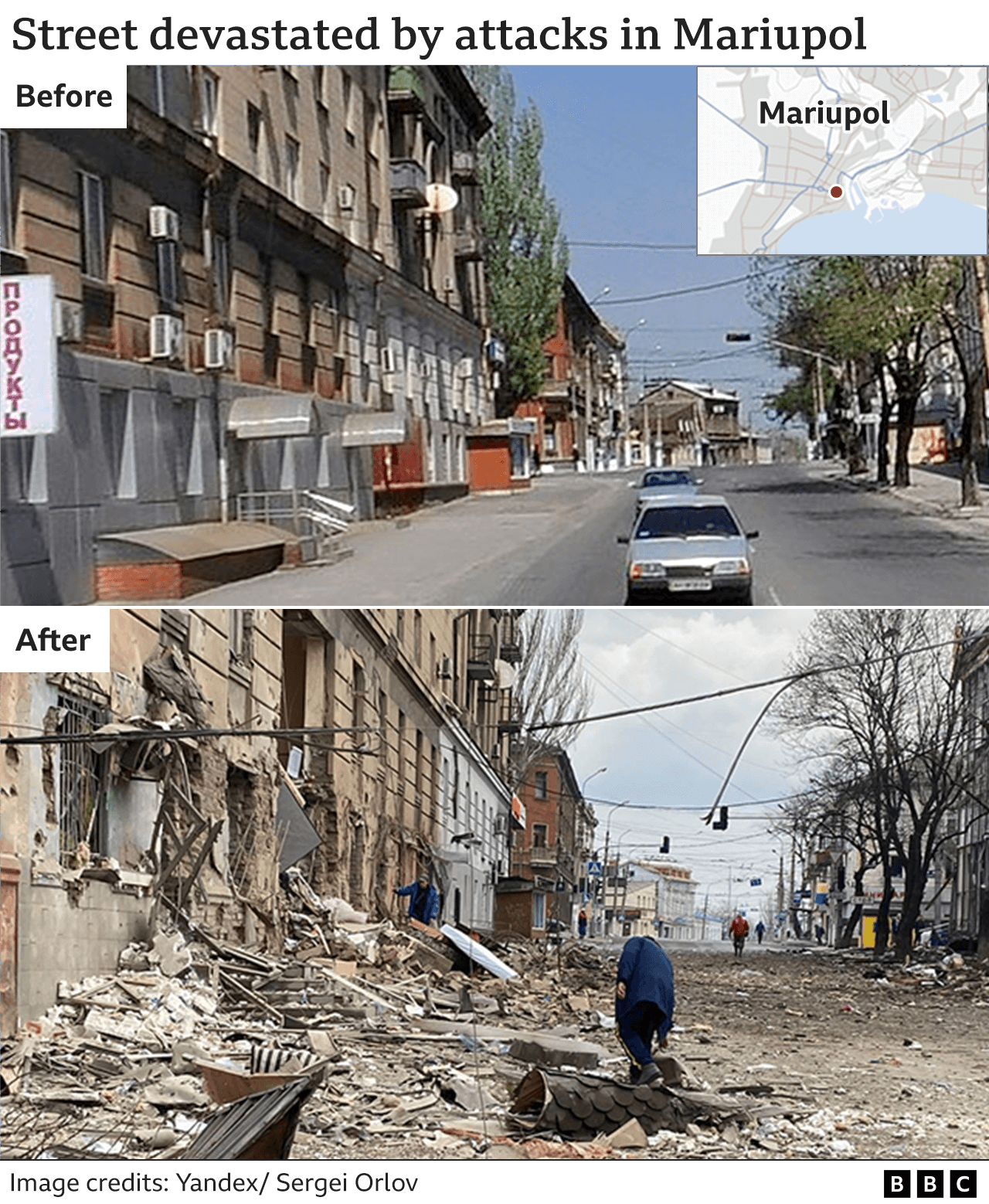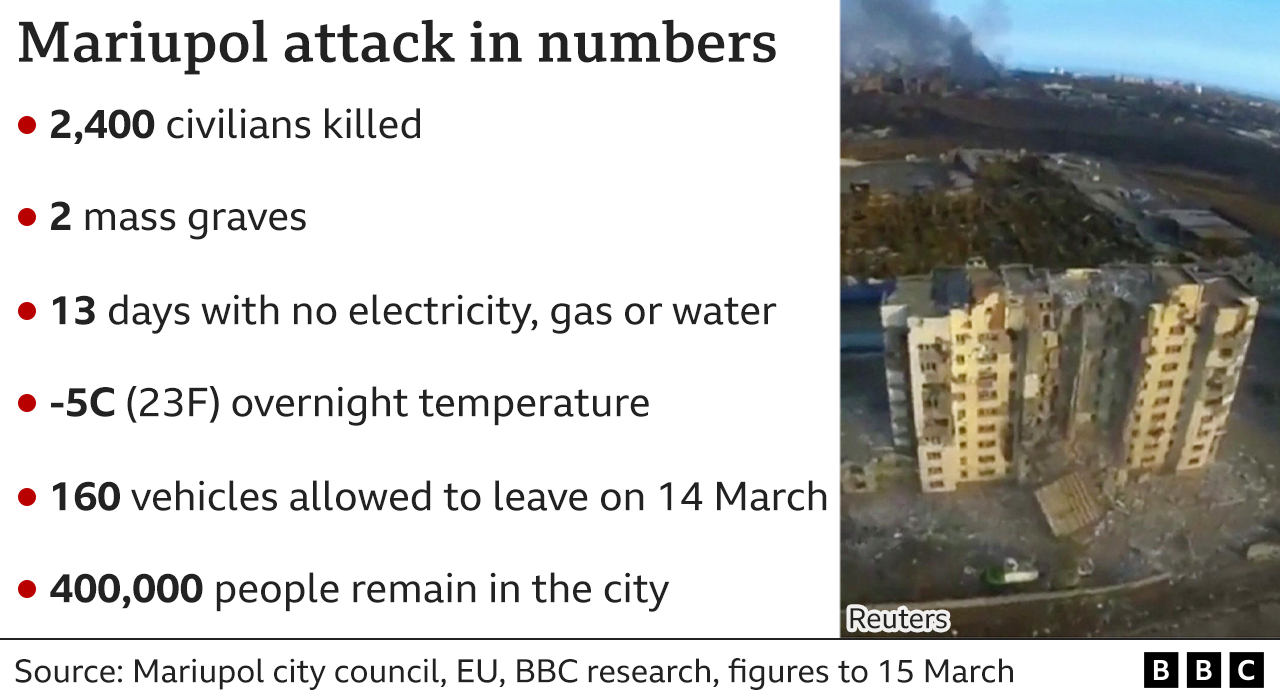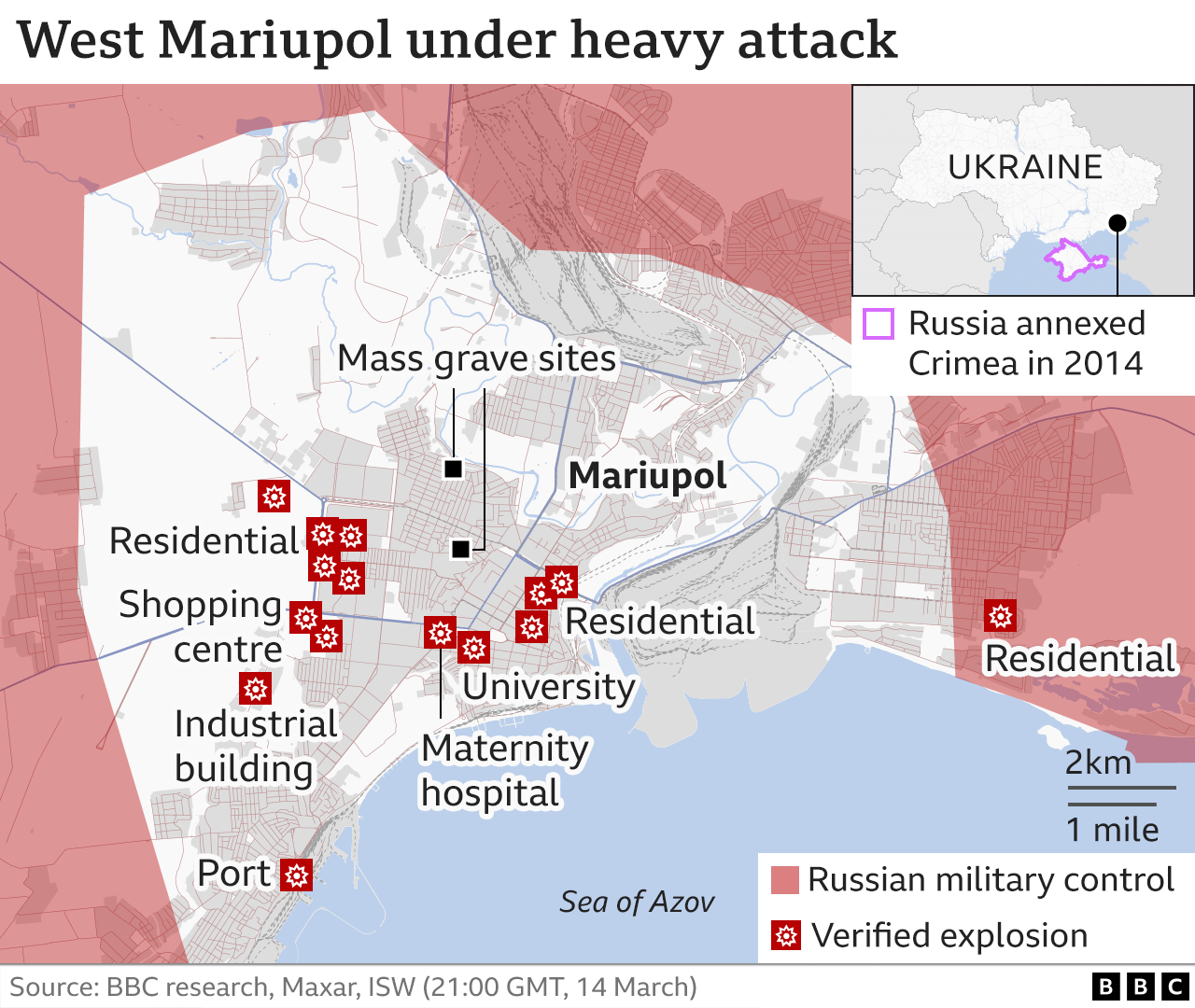Ukraine war: Infection and hunger as hundreds hide in Mariupol cellar
Hundreds of people are crammed into the basement of a large public building in the besieged Ukrainian port city of Mariupol, but are running out of food, with many also in need of urgent medical help.
"Some have developed sepsis from shrapnel in the body," said Anastasiya Ponomareva, a 39-year-old teacher who fled the city at the start of the war but was still in contact with friends there. "Things are very serious."
The city is encircled by Russian troops and remains under constant bombardment with almost 400,000 people still trapped without running water, and food and medical supplies quickly running out. The local authorities say the war there has left at least 2,400 civilians dead, but even they acknowledge that this is an underestimate.
Ms Ponomareva's friends are with other families in the basement of the building. They have all left homes that are no longer safe or no longer standing.
"People who managed to hide in underground shelters basically live there permanently," Ms Ponomareva said from the western city of Drohobych, where she was living. "They practically cannot leave at all."
Most of their day is spent hiding in the basement. From time to time they go upstairs for some sunlight, but rarely outside. Conditions, she was told, were quickly deteriorating, as some people had a fever and nothing could be done to treat them. "There is no medical help, no antibiotics."
Some streets are so dangerous that few go out to pick up the dead. Many are being buried in mass graves. The almost non-stop Russian attacks have turned their old neighbourhoods into wasteland. New drone footage (pictured above) showed the vast extent of the damage, with fire and smoke billowing out of apartment blocks and blackened streets in ruins.
"On the left bank, there's no residential building intact, it's all burned to the ground," Ms Ponomareva said. "The city centre is unrecognisable."


Sheltering in the same building, a family of four has been in touch with Serhii Kozyrkov, a 40-year-old pastor who left Mariupol two weeks ago. "It's very crowded and there isn't enough food," Mr Kozyrkov, who is now in Lviv, said. "People get ill because it's very cold and everyone is lying next to each other."
The family are desperate to flee. On Monday, about 160 cars managed to leave Mariupol, in what seemed to be the first successful evacuation of residents after multiple failed attempts, with Ukrainian authorities accusing Russia of attacking the city and even routes to be used by civilians, despite agreeing to ceasefires.
But no humanitarian aid was allowed into the city. Sergei Orlov, the deputy mayor of Mariupol, said things were "getting more difficult by the hour". Monday's convoy of vehicles had been organised by civilians who decided to leave, he said, and was not part of an official corridor.
"The situation is horrible," he said. "There isn't enough food, water, medicine, insulin, baby food. Everyone has specific needs." According to Mr Orlov, cars with supplies have been waiting for four days but the Russians have not let it in. "We get a lot of calls. For example, a mother who says 'I have a child in my hands [who] is dying from hunger.' Or we get a call 'Here's our address. We're blocked in the basement. What should we do?'," Mr Orlov said.
"Unfortunately," he said, "we can't do anything."


Back in the basement, the family told Mr Kozyrkov they could hear the sound of explosions nearby but that their building remained intact. There is one generator which they use to recharge their phones and, from time to time, they venture outside to make some calls.
"The shelling doesn't stop," he said. "They're very frightened."
Ms Ponomareva said the situation was "very difficult, to put it mildly." People need a humanitarian corridor, she said. "Otherwise, it's a slow death from hunger and thirst."

Additional reporting by Maksym Popovych

War in Ukraine: More coverage



No comments